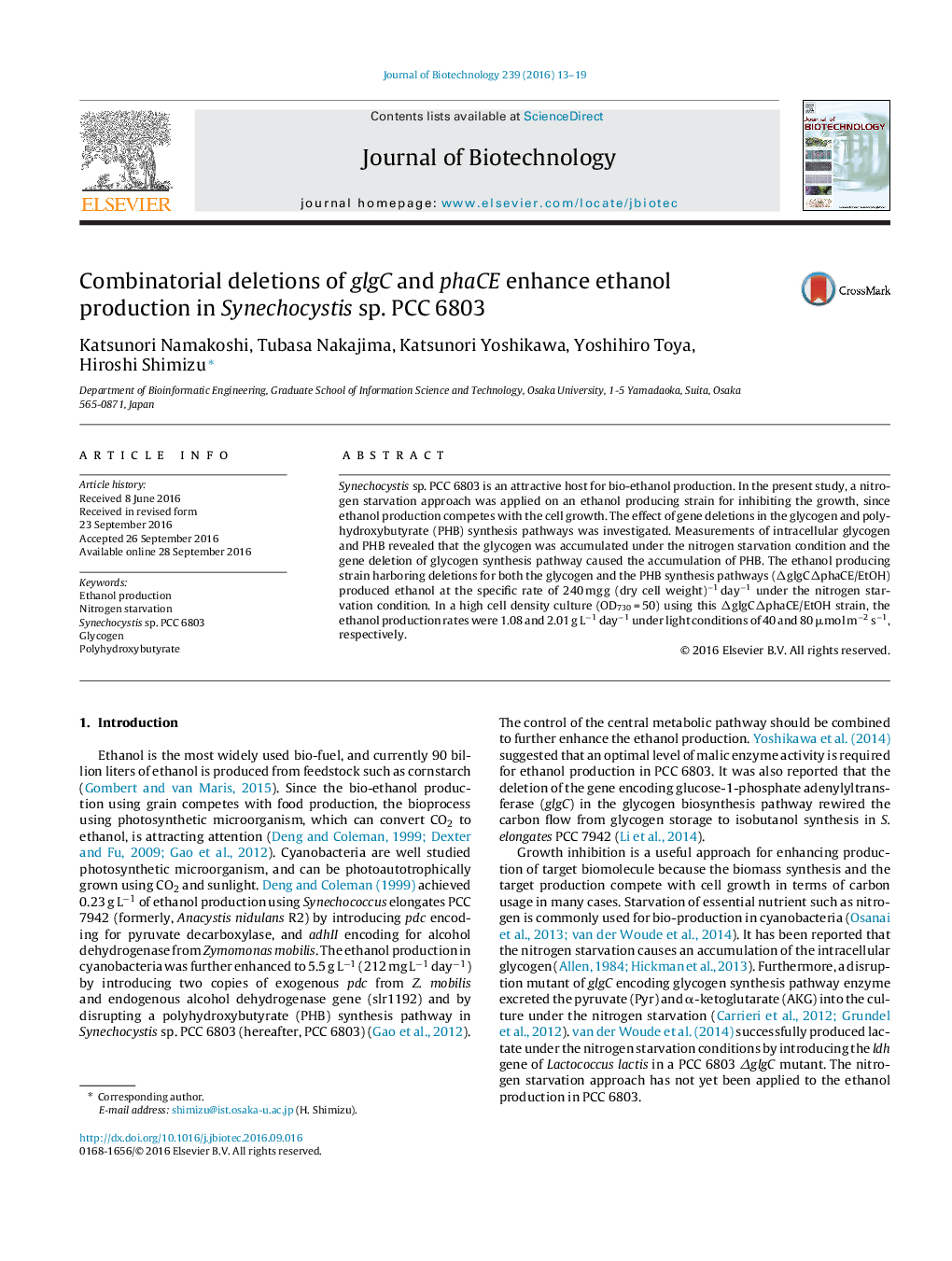| کد مقاله | کد نشریه | سال انتشار | مقاله انگلیسی | نسخه تمام متن |
|---|---|---|---|---|
| 6452246 | 1417005 | 2016 | 7 صفحه PDF | دانلود رایگان |

- Nitrogen starvation was applied for ethanol production in Synechocystis sp. PCC 6803.
- Ethanol producing strain accumulated glycogen under nitrogen starvation condition.
- Glycogen synthetic pathway deletion caused polyhydroxybutyrate (PHB) accumulation.
- Deletions of glycogen and PHB synthetic pathways enhanced the ethanol production.
- Ethanol production rate of the strain was 2.01Â g/L/day in high cell density culture.
Synechocystis sp. PCC 6803 is an attractive host for bio-ethanol production. In the present study, a nitrogen starvation approach was applied on an ethanol producing strain for inhibiting the growth, since ethanol production competes with the cell growth. The effect of gene deletions in the glycogen and polyhydroxybutyrate (PHB) synthesis pathways was investigated. Measurements of intracellular glycogen and PHB revealed that the glycogen was accumulated under the nitrogen starvation condition and the gene deletion of glycogen synthesis pathway caused the accumulation of PHB. The ethanol producing strain harboring deletions for both the glycogen and the PHB synthesis pathways (ÎglgCÎphaCE/EtOH) produced ethanol at the specific rate of 240 mg g (dry cell weight)â1âdayâ1 under the nitrogen starvation condition. In a high cell density culture (OD730 = 50) using this ÎglgCÎphaCE/EtOH strain, the ethanol production rates were 1.08 and 2.01 g Lâ1âdayâ1 under light conditions of 40 and 80 μmol mâ2 sâ1, respectively.
130
Journal: Journal of Biotechnology - Volume 239, 10 December 2016, Pages 13-19